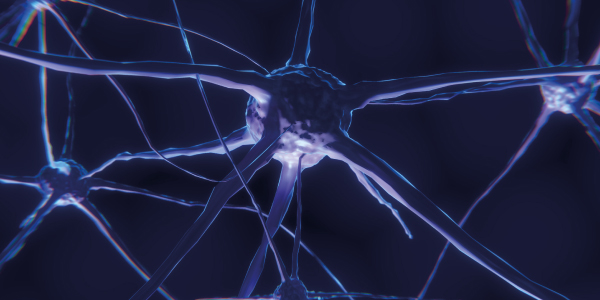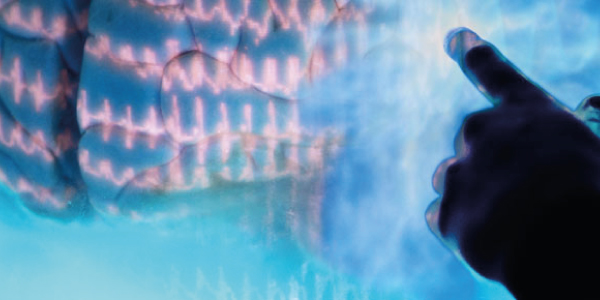Neuropsicologia Clínica e Experimental
O Mestrado Interuniversitário em Neuropsicologia Clínica e Experimental (IMCEN) é um programa de pós-graduação inovador que une os recursos docentes e de investigação de três das principais universidades portuguesas (Universidades de Coimbra, Lisboa e Minho).
O IMCEN é um programa de mestrado de grande escopo em neurociência clínica e experimental, com o objectivo de treinar estudantes a fornecer e a inovar a prática neuropsicológica baseada nos mais recentes desenvolvimentos nas neurociencias experimentais.
O nosso objetivo é selecionar um grupo internacional de graduados em psicologia com sólida formação em psicologia e neurociências, altamente motivado a seguir uma carreira em neuropsicologia clínica e/ou experimental.
Duração do Mestrado
2 anosECTS
120Regime
DiurnoAdmissões
6Óscar F. Gonçalves
ESCOLA DE PSICOLOGIA DA UNIVERSIDADE DO MINHO
Adriana Sampaio
ESCOLA DE PSICOLOGIA DA UNIVERSIDADE DO MINHO
Mário R. Simões
FACULDADE DE PSICOLOGIA E DE CIÊNCIAS DA EDUCAÇÃO DA UNIVERSIDADE DE COIMBRA
Jorge Almeida
FACULDADE DE PSICOLOGIA E DE CIÊNCIAS DA EDUCAÇÃO DA UNIVERSIDADE DE COIMBRA
Sem candidaturas para o ano lectivo 2022/23.
Requisitos de Admissão
Podem candidatar-se ao Mestrado em Neuropsicologia Clínica e Experimental, os que satisfaçam uma das seguintes condições:
a) os titulares de licenciatura em Psicologia ou Ciências(s) Psicológica(s);
b) os titulares de um grau académico superior estrangeiro, conferido na sequência de um ciclo de estudos em Psicologia ou Ciências(s) Psicológica(s), organizado de acordo com os princípios do processo de Bolonha por um Estado aderente a este processo;
c) os titulares de grau académico superior estrangeiro que seja reconhecido pela Comissão Científica e Coordenadora do ciclo de estudos como satisfazendo os objetivos do grau de Licenciado em Psicologia ou Ciências(s) Psicológica(s).
Critérios de Seleção e de Seriação
a) Classificação final na Licenciatura (Ponderação 10/100);
b) Carta de motivação (Ponderação 10/100);
c) Relevância e adequação do currículo académico, científico e técnico-profissional (Ponderação 40/100);
d) Entrevista (Ponderação 40/100)*.
*A entrevista será realizada apenas aos candidatos que obtiverem a classificação mínima de 50 pontos considerando a soma da pontuação atribuída aos critérios a), b) e c). Os candidatos que não obtiverem a classificação mínima de 50 pontos (soma dos critérios a), b) e c)) serão automaticamente excluídos.
Propinas
Registo DGES
R/A -Cr 69/2018
Publicação em DRE
Despacho n.º 9751/2018, de 17 de outubro
N.º do Processo
NCE/17/00134
Decisão
Acreditado por 6 anos
Data de Decisão
07-06-2018
1.º Ano / 1.º Semestre
Unidades Curriculares Obrigatórias
Métodos de Investigação em Neuropsicologia
Coordinator: Ana Raposo (University of Lisbon)
Learning Outcomes: The course is intended to provide a rigorous introduction to some of the main research methods in neuropsychology. Students are expected to:
1. Learn the basic principles of experimental design and the specificities of each method
2. Think critically about the strengths and limitations of each research method
3. Plan the different steps associated with data collection
4. Learn the processing steps associated with data analyses 5. Be able to interpret the results
6. Use the available software packages
Neuroanatomia Funcional
Coordinator: Adriana Sampaio (University of Minho)
Learning Outcomes: The course is intended to provide a complete introduction to the main macroscopic and functional organization of the central and peripheral nervous system and was defined based on an adaptation of a Delphi Panel for Neuroanatomy (Moxham et al. 2015). At the end of this course, students are expected to:
1. Know the main macroscopic and functional organization of the central and peripheral nervous system;
2. Match alterations of the functional anatomy with main clinical symptoms;
3. Match structural and functional anatomy with 3D medical images;
4. Describe the cerebrovascular anatomy, vascular territories and clinical correlates of an injury;
5. Describe the anatomy-function correlation in major neurological syndromes.
Neurociência Cognitiva, Emocional e Social
Coordinator: Jorge Almeida (University of Coimbra)
Learning Outcomes: The goal of this course is to familiarize students with the functioning of the brain, and its relationship with cognitive, emotional and social domains. We will also focus on how the most used methods in the cognitive neurosciences (fMRI, TMS, EEG, etc.) allow for the understanding of the brain-mind relationship. At the end of this course, students should be able to understand how different cognitive, affective, and emotional processes are related to different types of response patterns in different neuronal areas.
Rotação Laboratorial em Neuropsicologia Experimental — Major
Coordinator: Óscar F. Gonçalves (University of Minho)
Learning Outcomes:
At the end of the lab rotation students are expected: In terms of Scientific Knowledge:
1. To explore major databases (PubMed, Web of Science, PsychInfo, Scopus, Scielo, and ProQuest Psychology).
2. To use relevant keyword combinations for literature review.
3. To organize scientific knowledge using narrative reviews, systematic reviews and meta- analyses.
4. To show familiarity with distinct experimental designs.
5. To become familiar with Ethical guidelines for research with human participants.
In terms of Research Skills:
1. To program experiments at least one software/programing language.
2. To become familiar with different sampling techniques.
3. To implement data collection using a combination of, least, two methods (psychophysics; EEG/ERP; EMF; tDCS/TMS; fNIRS, fMRI, neuropsychological testing).
4. To use post-processing methods and/or data quality control procedures.
5. To graph experimental data.
6. To implement different data analyses approaches.
In terms of Communication Skills:
1. To do oral presentations of research reports.
2. To organize results from an experiment in a poster format.
3. To appropriately quote, cite and paraphrase relevant literature.
4. To use appropriate softwares to detect plagiarism
1.º Ano / 2.º Semestre
Unidades Curriculares Obrigatórias
Síndromes Neuropsicológicos e Psicopatológicos Competências de Neuropsicologia Clínica
Coordinator: Adriana Sampaio (University of Minho) [15 h TP],
Learning Outcomes:
1. Acquire knowledge about the semiology of the neurologic/neurosurgical and psychiatric patient.
2. Recognise the main pathological signs after the neuropsychological assessment interview and the neurological examination.
3. Know the epidemiology of the different neuropsychological and psychiatric pathologies.
4. Recognise the clinical signs and symptoms of the different neuropsychological and psychiatric pathologies.
5. Train the skills of diagnosis in neuropsychology and psychiatry as well as the structuring of the functional and etiological diagnosis in syndromes, topography and anatomy.
6. Identify clinical conditions that require a specific clinical approach.
Competências de Neuropsicologia Clínica
Coordinator: Ana P. Pinheiro (University of Lisbon)
Learning Outcomes: The course is intended to provide students with knowledge and clinical skills required for the goals of neuropsychological assessment, diagnosis and rehabilitation of patients with brain dysfunctions.
Students are expected to:
1. Think critically about main problems regarding neuropsychological assessment, diagnosis and rehabilitation.
2. Understand the role of neuropsychology across the lifespan.
3. Learn neuropsychological aspects of common neurological problems (including
epilepsy, stroke, dementia, brain injury).
4. Develop skills and competences to plan and conduct neuropsychological assessment
and diagnosis as well as plan rehabilitation programs for patients with
neuropsychological disorders.
5. Learn evidence-based interventions for addressing the cognitive and emotional
consequences of common neuropsychological problems.
6. Be aware of the impact of culture, equality and diversity on practice.
7. Understand the importance of and be able to maintain confidentiality.
8. Be able to draw on appropriate knowledge and skills to inform practice.
9. Be able to communicate effectively.
Avaliação Neuropsicológica
Coordinator: Mário R. Simões (University of Coimbra) [15 h TP]
Learning Outcomes: The goal of this course are to provide students with in-depth knowledge of neuropsychological assessment process considering principles, techniques (interviews, observation and tests (Wechsler Intelligence Scales; Premorbid Intelligence; Cognitive Reserve; Cognitive Screening; Memory; Attention; Executive Functions; Activities of daily living; Effort, response bias and malingering) and neuropsychological reports.
Reabilitação Neuropsicológica
Coordinator: Adriana Sampaio (University of Minho) [15 h TP]
Learning Outcomes: The goal of this course are to provide students with in-depth knowledge of Neuropsychological Rehabilitation considering principles, programs and techniques, different neurocognitive domains (attention, memory, executive functions, language, perceptual / spatial disorders), as well as various clinical conditions (Neurodevelopmental disorders, cerebral palsy, epilepsy, cranioencephalic trauma, cerebrovascular accidents, dementia). Students will gain knowledge on the complexity of neuropsychological rehabilitation work; Identify practical and ethical issues related to the use of different rehabilitation techniques; Review the published research.
Rotação Laboratorial em Neuropsicologia Experimental — Minor
Coordinator: Óscar F. Gonçalves (University of Minho)
Learning Outcomes:
At the end of the lab rotation – minor students are expected:
In terms of Scientific Knowledge- to be familiar with research literature on a selected theme being researched at the elected Lab, by:
1. Using topic relevant keyword combinations to explore major databases (PubMed, Web of Science, PsychInfo, Scopus, Scielo, and ProQuest Psychology).
2. Conducting a literature review on the selected topic.
In terms of Research Skills, To Assist On A Laboratory Experiment Associated With The Topic Selected, by:
1. Helping in programing the experiment, recruitment, and data collection.
2. Analyzing and interpreting data.
In terms of Communication Skills – to communicate science results by:
1. Conducting an oral presentation in a lab meeting.
2. Presenting in poster format for the final poster festival.
2.º Ano / 1.º e 2.º Semestre
Unidades Curriculares Obrigatórias
Tese de Mestrado em Neuropsicologia Clínica e Experimental
Thesis Coordinator – Jorge Almeida
Estágio em Neuropsicologia Clínica e Experimental
Internship Coordinator – Óscar F. Gonçalves
Todos os Mestrados











